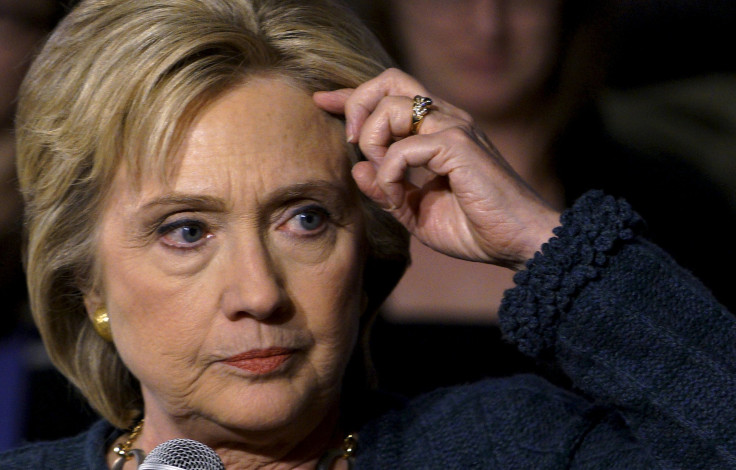Is Hillary Clinton Fading? Bernie Sanders Narrows Gap In Democratic Presidential Race To Smallest Deficit Yet: Poll

Ahead of the Feb. 1 Iowa caucus, Hillary Clinton's campaign must be "feeling the Bern," even if they'd rather not. Clinton, the onetime presumptive 2016 Democratic presidential candidate, has seen her lead slip to its lowest level yet, according to an ABC News/Washington Post poll released Wednesday.
Clinton edges out Sanders nationally 55-36 percent among Democrats and Democratic-leaning independents who are registered to vote, the poll found. That's her lowest level of support yet, by a single percentage point, while Sanders' support is at a new high, up 8 percentage points from the month prior. The Vermont senator's support jumped 17 points among independents, the poll found. Clinton's now-19-point lead nationally is down from 31 points last month. Her previous low was 26 points in November.
Clinton's advantage hits a campaign low; she lags on trust while leading on issues (POLL): https://t.co/ZpkywhuYmB pic.twitter.com/04933ekUKu
— ABC News (@ABC) January 27, 2016The poll also found that Sanders has built a 48-36 percent advantage in being considered honest and trustworthy. Clinton, meanwhile, registered support for her ability to handle individual issues and was considered to be more electable by a 39-point margin. The poll, produced by Langer Research Associates, was conducted via telephone Jan. 21-24 among a random sample of 1,001 adults. The results had sample errors of 3.5 percentage points for the full sample, 4 points for all registered voters and 5.5 points for registered Democrats.
The Iowa caucus, scheduled for next week, is expected to be a very close race on the Democratic side, with the RealClearPolitics average of polls showing Wednesday an ever-so-slight edge for Sanders. Just days from the caucus, a Quinnipiac University poll released Wednesday showed Sanders leading 49-45 percent in Iowa. Two percent of responders said they were undecided, and 19 percent said they could still change their minds. The Iowa race has proved incredibly tough to call, however, and over the years has not always been a reliable indicator of national sentiment. Factors including low voter turnout and an electorate that is predominantly white and religious make the results tough to trust as a barometer.
© Copyright IBTimes 2024. All rights reserved.












